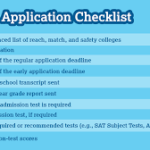The Power of Connection in Education
In today’s educational landscape, the partnership between parents and teachers serves as the foundation for student achievement. When these two vital influences work in harmony, children thrive academically, socially, and emotionally. This guide explores practical strategies to cultivate productive relationships that benefit everyone involved – especially the students.
Why This Partnership Matters More Than Ever
- Enhanced Learning Outcomes – Research consistently shows students perform better when their home and school environments are aligned.
- Behavioral Consistency – United expectations between classroom and home create stable boundaries for children.
- Emotional Security – Children flourish when they sense their support systems are connected and communicating.
- Proactive Support – Early identification of challenges leads to more effective solutions.
For Parents: Building Bridges with Educators
1. Maximize Conference Opportunities

- Treat parent-teacher meetings as essential appointments
- Prepare thoughtful questions that address both academic progress and social development
2. Initiate Positive Contact
- Send occasional notes acknowledging good classroom experiences
- Share relevant home observations that might help teachers understand your child better
3. Value Educator Expertise
- Approach concerns with curiosity rather than confrontation
- Remember teachers manage multiple students’ needs simultaneously
4. Embrace Constructive Feedback
- View teacher insights as valuable professional perspectives
- Collaborate on creating action plans for improvement
5. Extend Learning Beyond School
- Implement teacher-recommended enrichment activities
- Establish consistent homework routines that reinforce classroom expectations
For Educators: Strengthening Family Engagement
1. Maintain Transparent Communication
- Provide regular progress snapshots through preferred parent channels
- Celebrate growth milestones alongside addressing challenges
2. Cultivate an Inclusive Atmosphere
- Express genuine appreciation for parental involvement
- Frame discussions using strengths-based language
3. Deliver Actionable Insights
- Replace vague comments with specific, practical suggestions
- Provide clear examples of both progress and areas needing attention
4. Create Welcoming Opportunities
- Develop varied participation options for busy families
- Recognize and value diverse forms of family engagement
5. Adapt Communication Styles
- Accommodate different family schedules and technology access
- Offer multiple formats for receiving school updates
Navigating Common Challenges
- Language Considerations: Utilize school resources or community volunteers for translation support
- Scheduling Conflicts: Implement rotating meeting times or virtual conference options
- Differing Perspectives: Focus conversations on shared goals for the child’s wellbeing
The Ripple Effect of Strong Partnerships
Meaningful parent-teacher relationships require intentional effort but yield extraordinary rewards. These connections create a supportive network around each child, reinforcing learning and personal growth. By prioritizing mutual respect, clear communication, and shared goals, we lay the groundwork for our children’s brightest futures.











